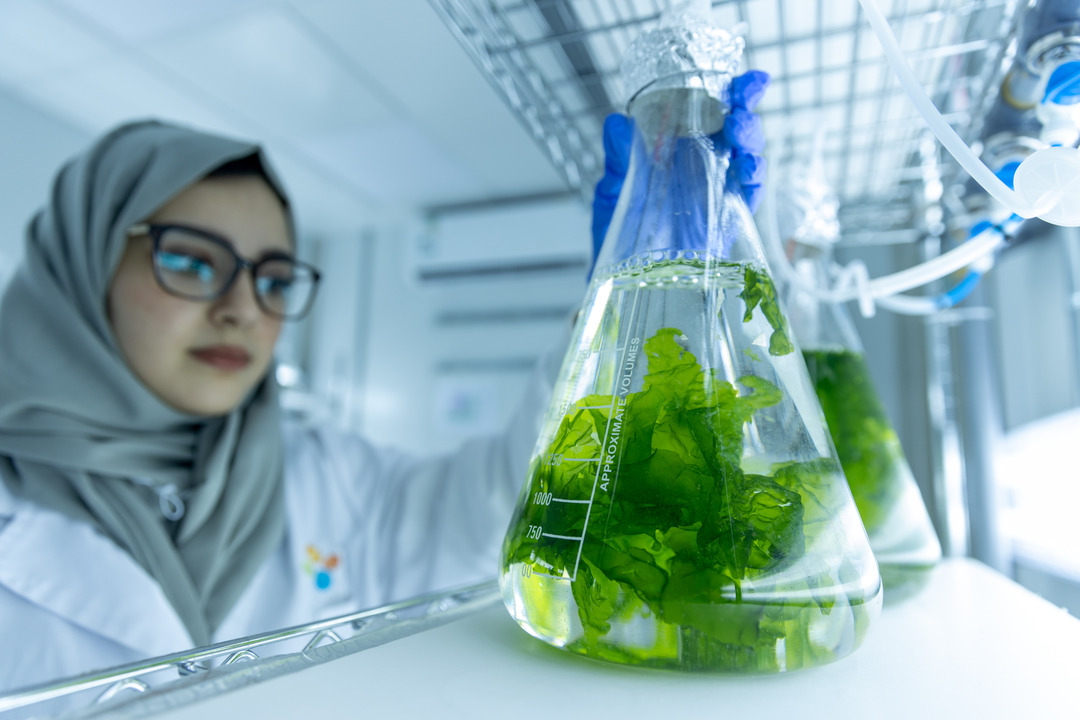Leading the fast-growing algae biostimulants industry

The National Livestock and Fisheries Development Program, Estidamah and KAUST have agreed to a collaboration that explores the burgeoning industry of biostimulants from algae
Saudi Arabia is well positioned to be at the forefront of a rapidly growing food technology industry. “Biostimulants” derived from marine algae are a promising alternative to traditional fertilizers that can boost crop yields significantly. King Abdullah University of Science and Technology (KAUST) has signed an agreement to collaborate with the National Livestock and Fisheries Development Program (NLFDP) and the National Research and Development Center for Sustainable Agriculture (Estidama) to explore the use of these algae biostimulants to enhance the quality of agricultural soils in the Kingdom.
Biostimulants are natural products produced by algae that can improve crop yield at lower cost. When applied to crop soils, they can enhance plant growth, root development and nutrient uptake without spoiling the soil, contaminating water supplies or releasing greenhouse gases, which distinguish them from chemical products such as fertilizers. They also promote tolerance to poor soil conditions, such as the arid land common to Saudi Arabia.
Due to restrictions on the use of chemical fertilizers in several countries, the biostimulants market is estimated to grow from US$3 billion in 2022 to over US$9 billion in 2032. Furthermore, algae biostimulants also promise a more sustainable farming method that achieves the same, if not better, food production while avoiding harmful chemical fertilizers and pesticides.
The Kingdom is well placed to tap into this emerging market right away. A commercial algae manufacturing plant of industrial size is already in operation at KAUST. The plant serves many purposes, including the production of biostimulants for commercial use in the Kingdom, and it is strategically designed to reduce the Kingdom’s dependence on imports of raw materials needed for food production. The algae plant at KAUST is expected to produce several tons of algae per month, with one kilogram of algae providing up to 20 liters of biostimulant — enough to treat several hectares of growing crops.
“Biostimulants are an innovative way to address soil health and improve food security for desert regions. KAUST has a large-scale algae plant already operating and we are excited to see the results,“ commented Dr. Yousef Al-Hafiz, Research Partnerships Advisor at NLFDP.
“KAUST has established itself as the Kingdom’s expert in algae science, and we are excited to benefit from their knowledge for the Kingdom’s benefit,“ said Dr. Khalid Al-Ruhaili, General Manager of Estidamah Center.
“Biostimulants are another avenue KAUST is exploring to provide innovative solutions that will position Saudi Arabia as a leader in food science,” commented KAUST President Sir Edward Byrne.
The project is investigating multiple algae strains to produce at a commercial scale, including new formulations that will replace chemical fungicides and pesticides. Already, the biostimulants produced by the parties have shown positive effects on multiple crops.

